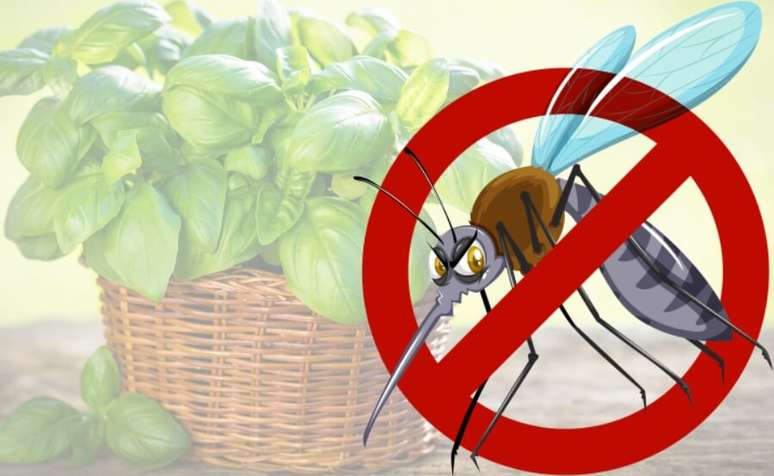With an increase of over 445% in cases of the disease, the adoption of natural prevention methods becomes fundamental
According to the Ministry of Health, Brazil has already exceeded 740,000 cases of dengue, an increase of more than 445% compared to the same period last year, when 165,839 cases were recorded. Given this record, it is essential to strengthen prevention measures. A simple and pleasantly scented strategy involves growing aromatic plants at home, which can help keep away the mosquito that transmits dengue fever. This is because the aroma of these plants and herbs interferes with the insects’ olfactory sensors, driving them away from people.
“Mosquitoes are attracted to the chemicals exhaled from our body, such as carbon dioxide, during breathing,” explains Giovani Lucas Miranda, professor of Science and Biology at Colégio Positivo.
This explains the proximity of mosquitoes to the human head. “It is an area of intense elimination of carbon dioxide, a chemical substance that attracts mosquitoes,” adds the professor.
According to him, some aromas repel mosquitoes, acting as a repellent and an effective method to combat dengue. Plants such as sage, lemon balm, lemongrass, basil and lavender are recognized for their essential oils that work as natural repellents against mosquitoes and other insects.
“Compounds such as citronellol, found in lemongrass, and linalool, found in lavender, affect mosquitoes’ olfactory sensors, hindering their ability to detect humans to bite. Basil contains eugenol, sage thujone and cineole, which can have toxic and irritating effects on the olfactory sensors of insects, discouraging them from staying in areas where these plants are present”, explains the expert.
Therefore, the essential oils of these plants can also help repel mosquitoes, including Aedes A Egypti, responsible for the transmission of dengue, zika and chikungunya. Although they do not represent a definitive solution, they contribute to reducing the presence of these insects in residential areas.
Know the properties of each plant
• Wise (Salvia officinalis): rich in essential oils such as cineole, borneol and thujone, known for their insect repellent properties. In addition to its traditional use in cooking for its strong aroma, sage is used to treat digestive problems and inflammation of the mouth and throat, as well as having antioxidant and antimicrobial properties.
• Melissa (Melissa officinalis) or lemon balm: Known for its calming properties, lemon balm contains essential oils such as citral, neral and geraniol, which help repel insects. It is easy to grow and attracts bees, aiding pollination in the garden.
• Lemongrass (Cymbopogon nardus): Essential oil is one of the most effective and natural mosquito repellents, used in candles, sprays and lotions. Contains geraniol, citronellol and citronellal, which interfere with insect sensors, effectively repelling them. In addition to its use as a repellent, lemongrass is used in aromatherapy to promote relaxation and relieve stress.
• Basil (Ocimum basilicum): rich in eugenol, linalool and citronellol, basil is widely used in cooking for its unique flavor, its antibacterial and anti-inflammatory properties, as well as being a source of antioxidants. Easy to grow, it attracts bees, is beneficial for the environment and also acts as a mosquito repellent.
• Lavender (Lavandula angustifolia): in addition to its well-known relaxing properties, used in aromatherapy products to relieve stress and induce sleep, lavender can repel mosquitoes and moths thanks to the essential oil that contains linalool and linalyl acetate.
Preventive measures
The use of plants and essential oils as natural repellents is an environmentally sustainable strategy, reducing reliance on chemical repellents, which can have negative effects on health and the environment.
“This is because in addition to repelling mosquitoes, these plants can attract beneficial insects and pollinators, playing a valuable role in maintaining the health of the local ecosystem,” underlines the professor.
Since the Aedes A Egypti is adapted to living with humans, it can bite throughout the day, especially during periods of less sunshine, when it tends to take shelter. However, this does not prevent it from biting inside houses during the day.
“In general it shows a preference for periods of low light, especially in the late afternoon. It is therefore advisable to install mosquito nets and close doors and windows after 4.30 pm, especially in areas with a known presence of these mosquitoes. And, if possible, use repellent,” suggests Giovani.
He stresses that it is important to understand that although growing these plants can help reduce mosquitoes, this measure must be part of a broader strategy to combat dengue, which includes community education, maintaining cleanliness and eliminating possible mosquito breeding sites.
Homemade repellent
It can be prepared with citronella oil, recognized for its natural mosquito repellent properties. The teacher recommends a basic recipe that can easily be made at home:
Ingredients:
-½ cup of water
– ½ cup grain alcohol or 70% alcohol.
– 50 to 60 drops of lemongrass essential oil
– 30 drops of lemon eucalyptus essential oil (optional to strengthen its effectiveness)
– 20 drops of lavender essential oil (optional, to add aroma and calming effect)
– An empty, clean spray bottle
Preparation method: In a small bowl, mix the alcohol with the essential oils. Alcohol helps to evenly disperse the essential oils and increases the effectiveness of the repellent.
Add water to the mixture and mix well. If you use isopropyl alcohol, the amount of water can be adjusted to soften the mixture to your preference. Using a funnel, transfer the mixture to the spray bottle. Make sure it is clean to avoid contamination. Shake the bottle before each use to ensure even mixing of the essential oils with water.
Spray the homemade repellent on exposed areas of skin, avoiding contact with eyes, mouth and wounds. If necessary, also apply it on clothes, curtains and near windows and doors where mosquitoes can enter. This natural repellent can be reapplied more often than commercial repellents, especially if you sweat or get wet.
Store the repellent in a cool place, away from light to preserve the integrity of the essential oils.
Special care
Perform a sensitivity test by applying a small amount of product to the wrist to check for any allergic reactions before using it all over the body.
Essential oils are powerful and should be used with caution, especially in children and pregnant women. Consult a healthcare professional before use.
inspires transformation in the world of work, in business, in society. Compasso, a content and connection agency, is born.
Source: Terra
Ben Stock is a lifestyle journalist and author at Gossipify. He writes about topics such as health, wellness, travel, food and home decor. He provides practical advice and inspiration to improve well-being, keeps readers up to date with latest lifestyle news and trends, known for his engaging writing style, in-depth analysis and unique perspectives.









